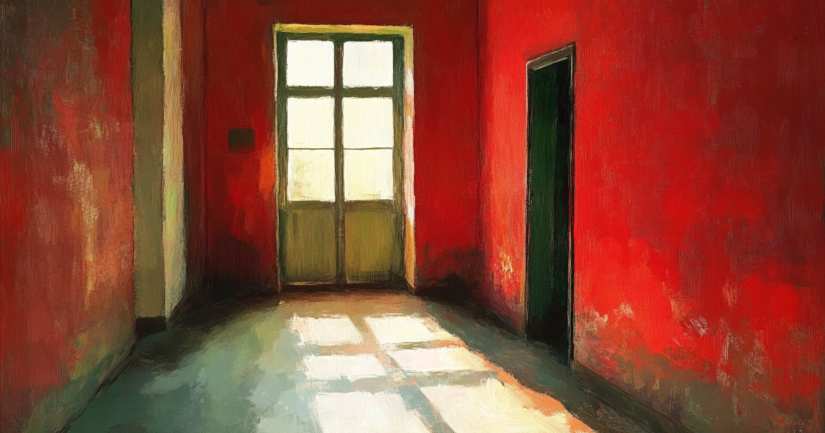Expand your understanding of the language and depth in Anne’s diary with our Diary Of Anne Frank Vocabulary Quiz – Explore the Language of Anne’s Story. The Diary of Anne Frank Vocabulary Quiz tests your understanding of the key words and phrases that appear throughout Anne’s diary. Her writing blends personal reflections with historical details, requiring an understanding of both emotional and wartime terminology. This quiz will help you analyze how language shapes the diary’s themes, emotions, and historical context.
Anne Frank was an intelligent and expressive writer. Despite her young age, her vocabulary reflects her deep observations about human nature, war, and personal growth. Her diary includes:
- Descriptive words – Anne vividly captures the world around her, using adjectives and imagery to describe the annex, her emotions, and the outside world.
- Historical terminology – Many words relate to Nazi occupation, anti-Jewish laws, and life in hiding. Understanding these terms is crucial to grasping the historical context.
- Emotional expressions – Anne’s evolving feelings about family, fear, and hope are reflected in the language she chooses.
If you enjoyed this quiz, try your hand at distinguishing truth from myth with the Diary Of Anne Frank True Or False Quiz.
Jump In – Take the Diary Of Anne Frank Vocabulary Quiz Now

Understanding the Vocabulary in The Diary of Anne Frank
Key Vocabulary Words from The Diary of Anne Frank
Some important words and phrases to know from the diary include:
- Annex – The hidden living space where Anne and her family sought refuge.
- Rationing – The strict limitation of food and supplies due to war shortages.
- Anti-Semitism – Discrimination against Jewish people, a key theme in Anne’s story.
- Occupation – The control of a country by a foreign military, in this case, Nazi Germany’s rule over the Netherlands.
- Genocide – The systematic attempt to destroy an entire group of people, as seen in the Holocaust.
- Deportation – The forced removal of Jewish people to concentration camps.
- Concentration Camp – A prison-like facility used by the Nazis to imprison and exterminate millions of people.
- Betrayal – A critical moment in the diary when the annex is discovered, likely due to an informant.
- Survivor – A term that applies to Otto Frank, the only annex resident who lived through the Holocaust.
- Resilience – A theme reflected in Anne’s unwavering hope despite dire circumstances.
Historical Context – The Power of Language in Wartime
Language played a significant role during World War II, both as a means of control and resistance. The Nazis used propaganda to spread anti-Semitic beliefs, while those in hiding, like Anne, used writing to preserve truth and personal identity. Understanding the vocabulary of this period helps readers connect Anne’s personal experiences to the larger historical events surrounding her.
For Anne, words were more than just a way to document her days—they were a way to express emotions, process fear, and find meaning in an uncertain world. Her diary remains one of the most powerful examples of how language can preserve history and give a voice to those who suffered.
How to Master The Diary of Anne Frank Vocabulary Quiz
To succeed in this quiz, focus on:
- Contextual meanings – How does Anne use certain words to describe her experiences?
- Historical accuracy – What do terms like deportation and rationing mean in the context of the Holocaust?
- Emotional language – How does Anne’s vocabulary evolve as she matures?
By studying these words, you’ll gain a deeper appreciation for Anne’s storytelling and the historical realities of her time.
Ready to Test Your Knowledge?
Anne Frank’s diary is not only a historical document but also a beautifully written reflection on life, hope, and resilience. This quiz will challenge your understanding of the language she used to capture her experiences. Are you ready to explore the vocabulary of Anne’s world? Take the Diary of Anne Frank Vocabulary Quiz now and see how well you understand the words that shaped her story!
Diary of Anne Frank Quizzes: Step inside the secret annex …
Anne’s words bring her experiences to life, but do you know their meanings? Want to see how well you remember the diary’s most famous lines? Take the Diary Of Anne Frank Quote Identification Quiz. And for a challenge covering the full scope of Anne’s diary, tackle the Diary Of Anne Frank Full Book Quiz!
Diary Of Anne Frank Vocabulary – FAQ
The primary theme is the resilience of the human spirit in adversity. Anne’s diary entries showcase her courage, optimism, and hope while hiding during World War II. Her words remind us of the strength found in humanity, even in dire circumstances.
Anne Frank’s writing is candid and youthful, using expressive and vivid language that reflects her emotions and thoughts with honesty and clarity. Her entries reveal her growth, maturity, and introspection, making her writing relatable to readers of all ages.
It’s an important educational tool because it humanizes the Holocaust. By presenting history through a young girl’s eyes, it fosters empathy and understanding. Educators use the diary to teach about the impact of prejudice, the importance of tolerance, and the value of human rights.
It has significantly impacted modern literature and society by raising awareness of the Holocaust and promoting hope and resilience. It has inspired plays, films, and books, ensuring Anne’s story continues to resonate and educate future generations
